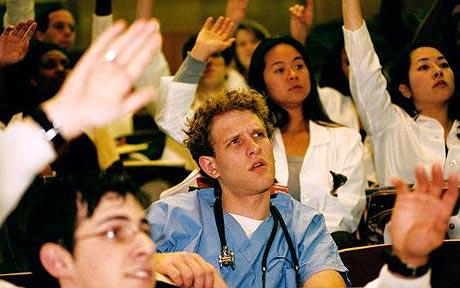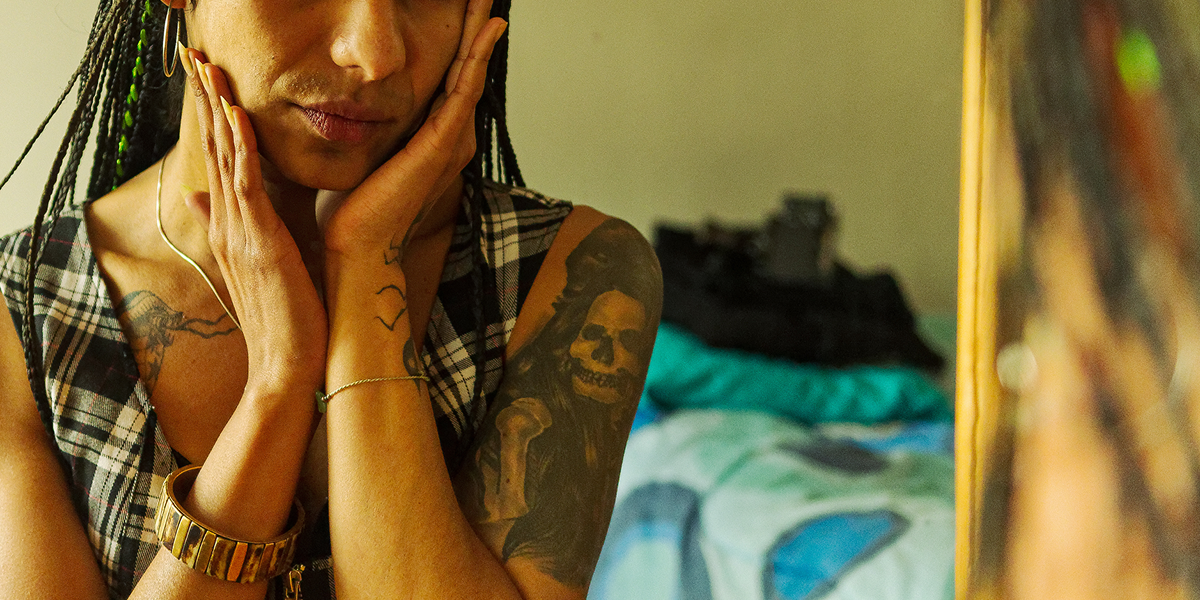Having to explain Sex and Gender 101 to your health provider is an annoying and distressing part of visiting the doctor for many LGBTQ patients. In May Riese reported on this awkwardness and the landmark health education reforms at NYC’s Bellevue Hospital using the training video, “To Treat Me, You Have to Know Who I Am: Welcoming Lesbian, Gay, Bisexual and Transgender Patients into Healthcare” with the help of The National LGBT Cancer Network. While it’s certainly refreshing to know NYC is making these moves, a report published in the current issue of the Journal of the American Medical Association shows there is a long way to go in assuring that med students receive quality LGBTQ curriculum as part of their medical education.

The findings of the recently published report demonstrate that LGBT curriculum for many med schools is still fairly pathetic. Conducted by Stanford University’s LGBT Medical Education Research Group, the study asked deans to answer a 13 question web-based questionnaire assessing LGBTQ curriculum at their institution.
The disappointing results of the survey of 150 programs found that on average med schools teach about five hours of LGBT related content, and some even reported teaching absolutely none. The quality of the content of the programs varied widely, and at 58 (out of 176) of those schools it only qualified as “fair.”
While the study did find students are increasingly being taught to ask if patients sleep with men, women, or both, understanding the difference between sexual behavior and identity is a different issue. Having to clarify the differences to a bewildered health-care provider is awkward enough, but there are many other issues at hand when it comes to poor education in LGBTQ curriculum. CNN’s blog The Chart explains:
Higher rates of anxiety, depression, suicidal thoughts, smoking, alcohol consumption, substance use, youth homelessness, harassment, sexually transmitted infections, and HIV/AIDS all affect the LGBT community, studies show.In addition to persistent social stigma, there are structural barriers to health care access among the LGBT community, such as partners not qualifying for employer-sponsored health care coverage.
Even if your health care provider happens to be one of those who’s been trained to ask about your identity, that doesn’t mean they have any idea that there are specific health concerns that go along with it. And effective, safe medical care for trans* people can be even harder to come by; it can be difficult to find even find a provider who doesn’t characterize your body and identity as disordered, let alone know how to treat you. And so it looks like for now we will have to continue doing the education in the doctor’s office or seeking out providers through the Gay & Lesbian Medical Association. At least these doctors get it!
Some educators have pointed out that in a study such as this it’s hard to account for what other environmental factors may inform med students about LGBTQ issues from a broader context on campus and their own lived experience. Nevertheless, it’s hard to deny the results of this survey pointing to an need for increased attention paid to the topic to assure improved healthcare for the LGBTQ community.







